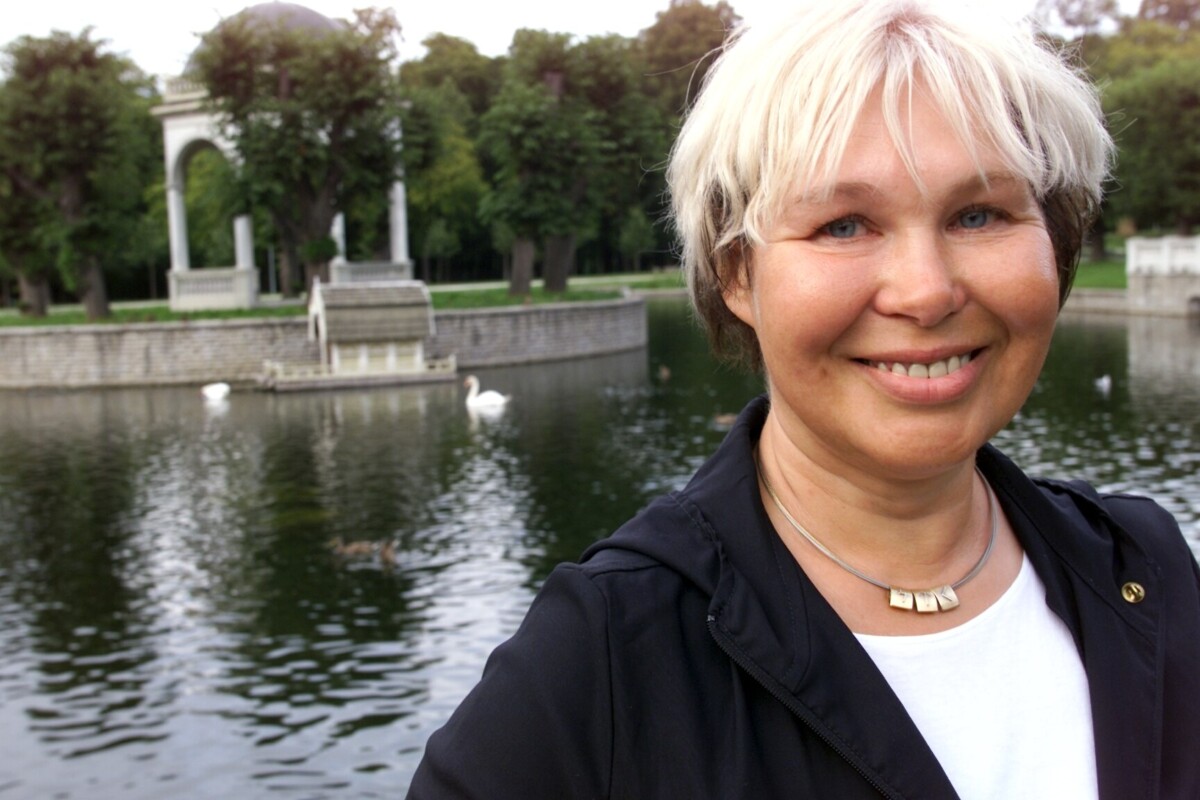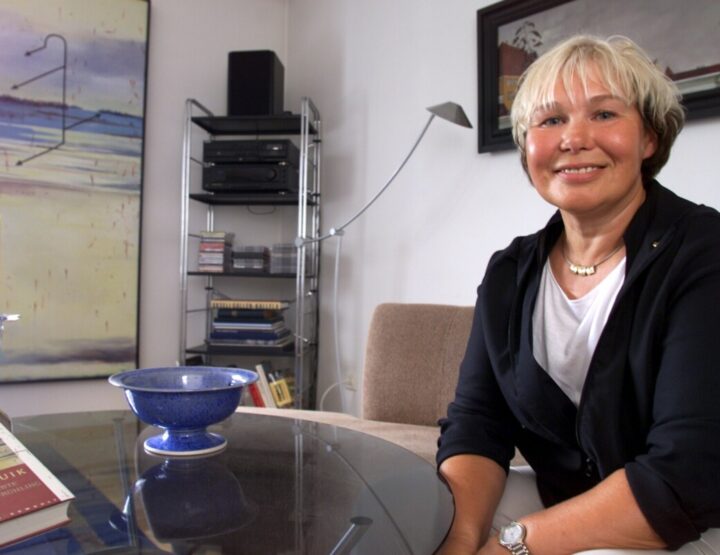Just then, there was a loud knock on the front door. It opened with a squeak, like a dry cough, and suddenly a short, totally strange old man stood on the threshold.
Curious, I came out from the back room and saw Grandma button up her sweater and take a few steps back. The darkness of the entry loomed behind the stranger as he gave us a brittle greeting. A circle of straggly gray hair surrounded his bald pate and a pair of foggy glasses glimmered above the brows on his forehead. The elbows of his long navy overcoat had been very carefully patched. His feet didn’t show from under the coat, either because the coat was too long, or his legs too short.
The stranger held a wet gray hat tenderly across his stomach and from the sides of his coat I glimpsed a tie.
I thought this must be my dead grandfather. Well, he’s reappeared at last! I nodded my head knowingly and followed the expression on grandma’s face very carefully. But it looked normal, not the least alarmed.
The stranger’s eyes scoured the room with curiosity, but at the same time with a certain dignity. This wasn’t my dead grandfather, but an educated man. This was Ilves, the director of the library, as we soon found out from what he told us. As he announced his name he offered grandma his hand, with a sweep that cut through the room’s semi-darkness, and was accompanied by a cheerful rumbling voice even though there was nothing in particular to be cheerful about. No-one was interested in becoming a reader, even though Ilves had gone from house to house inviting people to use the library. Everyone seemed to be afraid of something.
“They think it’s a ruse,” rumbled Ilves’ deep voice from under the rafters.
Now the hat was already on the table and the hand was again sweeping the air and landing on the top of my head, clean and heavy like a thick new book.
Grandma’s face gradually relaxed and the blue of her eyes intensified. But Ilves’ crackling words flew back and forth under the ceiling, as though they were black swallows, just as familiar and friendly, even though they had come here from foreign lands.
Apparently one autumn during Ilves’ boyhood had been just as wet, or even wetter than the present, and he was born in Võisiku county, the same place that grandma was born. Schooling hadn’t made him arrogant, that was obvious from his eyes.
It turned out that Ilves had been assigned the job of introducing rural women to cod. He took out a picture of a gray codfish from his breast pocket along with instructions on how to skin cod and a typewritten list of different dishes that could be prepared from it. At the end of this list was a description of the behaviour and habits of cod.
Grandma became suspicious again. “Well, what’s so special about old cod. Herring’s a lot better.”
Ilves didn’t know where one could get cod. He thought it may be available in bigger towns. But he didn’t forget to ask for grandma’s signature on a sheet of paper. Grandma snuffled as she drew her name with the ballpoint pen, and after that, Ilves was happy. “Now then, Anna Kitsing – introduced to the cod” and out of happiness he clicked the toe of one boot against the heel of the other. It seemed he was now free to enjoy himself. He took out a pack of cigarettes and started to smoke. His voice quacked triumphantly as he explained, “When I did forced labor in the woods, a little wagtail gave me back the will to live. She had the strength to jump around and twitter on the ice, even though she didn’t have a crumb of bread. We had bread, we just didn’t have meat or butter. Then, in my hunger I started recalling all the poems I had learned in school, and started reciting these to myself. I was just like a stiff old wagtail, twittering to myself. What did I know about the behaviour of cods at that time! I guess it’s all sort of ridiculous, but who can you complain to!”
His kindly eyes turned from grandma to me, waiting to hear our comments.
Grandma told me quietly, “Go to the pantry and put as many eggs as you have fingers on both hands into the smaller basket.”
I scampered to the pantry and started heaping large brown eggs into the kindling basket. These may still have been the eggs laid by the hen who had recently been killed by a polecat. I sighed anxiously as I counted my fingers and the eggs in turn. The count got muddled and I had to start anew.
Just as I was returning from the pantry I heard grandma reciting strange words that sounded almost as though cast in iron:
“Birch leaves are already falling
Bleak winds sweep across the lea …”
She paused for a long moment and then continued in her usual everyday deep and worried voice, “An ignorant person like me doesn’t know much, but ever since I was little, those words have made me choke up when I recall that poem. It’s as though there’s trouble in the air, and this is how it’s being made known …”
It seemed as if Ilves wasn’t even listening to grandma. He was staring down at the front of his jacket and only after a long pause did he raise his eyes and say, “Yes, that’s how I have felt.” And his nose, his bald scalp, and even his breast pocket made it obvious that he had a great worry. And that he was trying to hide it.
In confusion I stared at the backs of Ilves’ hands, examined his gaze and the lapels of his coat. He wasn’t hunched, his hands didn’t tremble, yet for all the cheeriness in his voice, he was suddenly transformed into one big worry.
Suddenly I had the feeling that the same thing had happened to me once before, that someone had looked at me and told me a funny story with a cheerful face, but that I hadn’t even listened to the story, because I had noticed the speaker’s gums, his nostrils and the pupils of his eyes. I had seen the flashing of his eyes and sensed that he had a great worry.
This feeling, or recollection, flashed once in the back of my head, just as when you want to say something, but you’ve forgotten what it was, even before you’ve had the chance to say it. I strained to recall who it was, my eyes even narrowed from the effort, but I couldn’t recall who had hidden such a worry, or whether such a thing had even actually happened.
Maybe it had been my earlier impression of Ilves? I had after all, observed his expression, and the tone with which he had said “Yes, that’s how I have felt” was still ringing in my ears.
Translated by Madli Puhvel
1985 edition pp. 73-76
© ELM no 24, spring 2007




